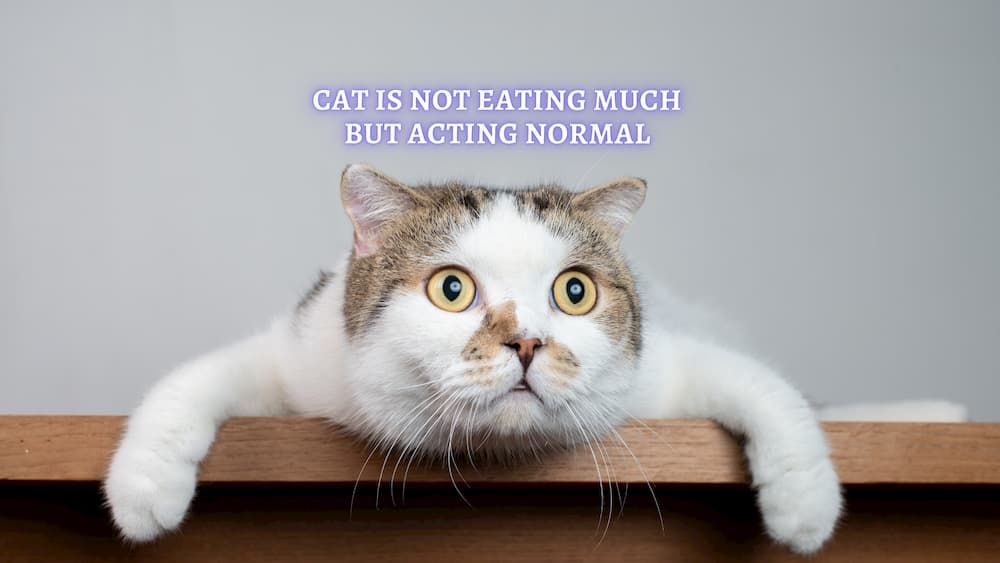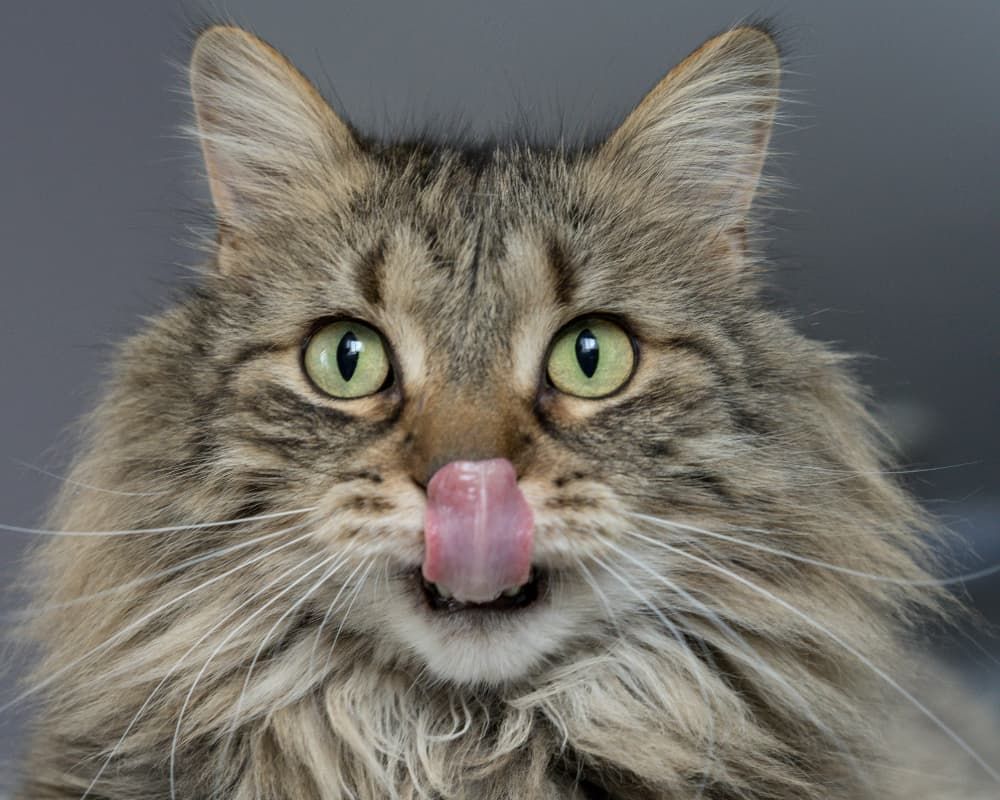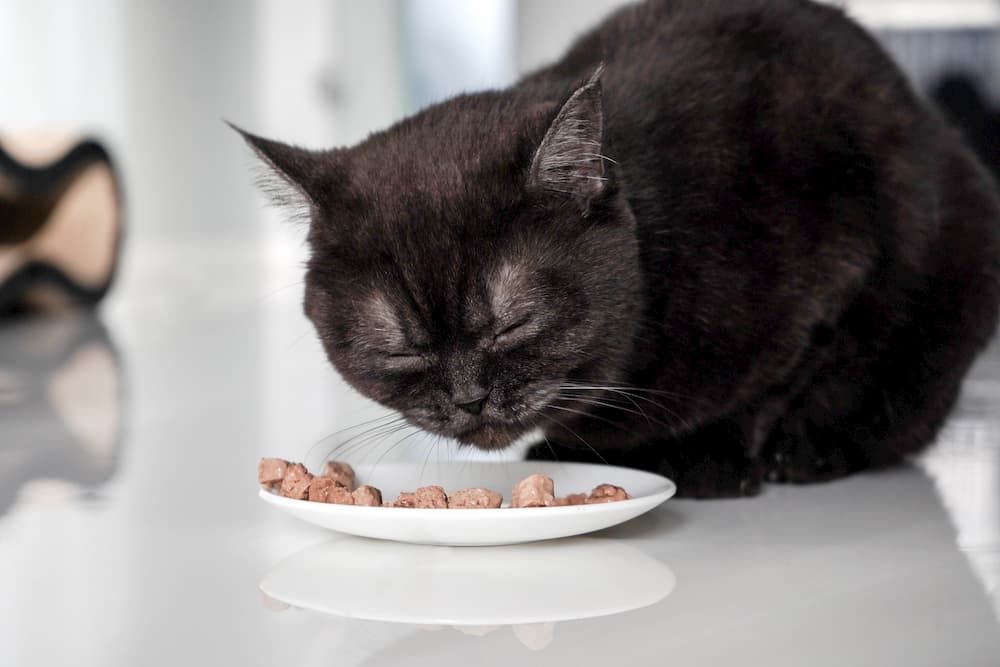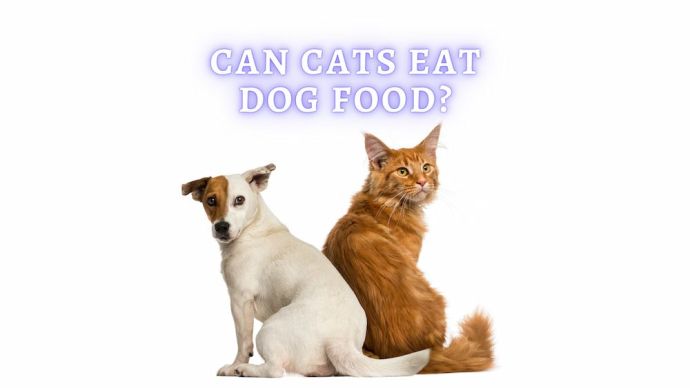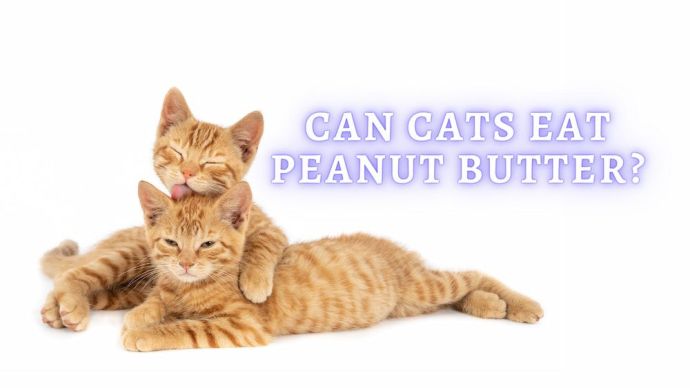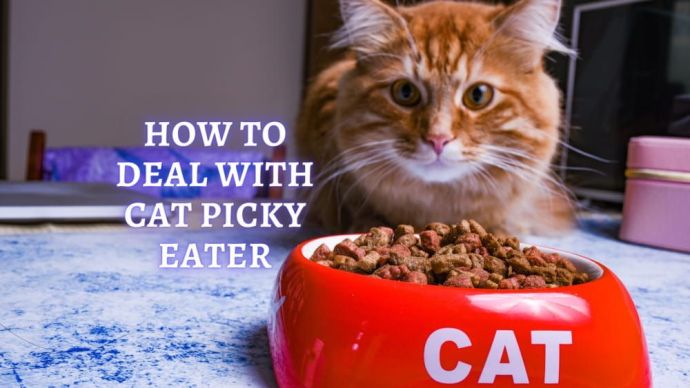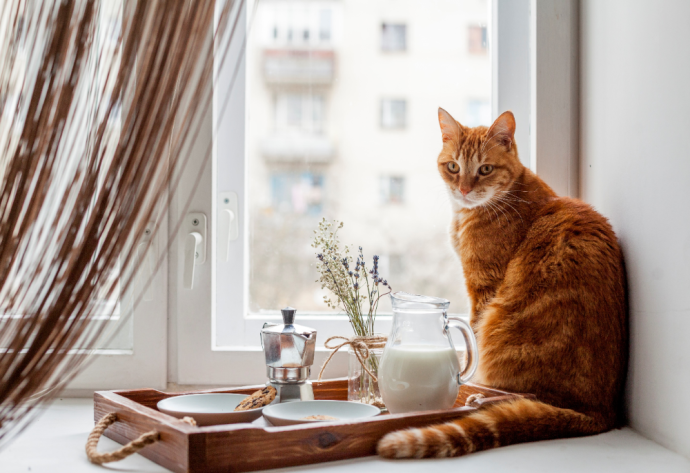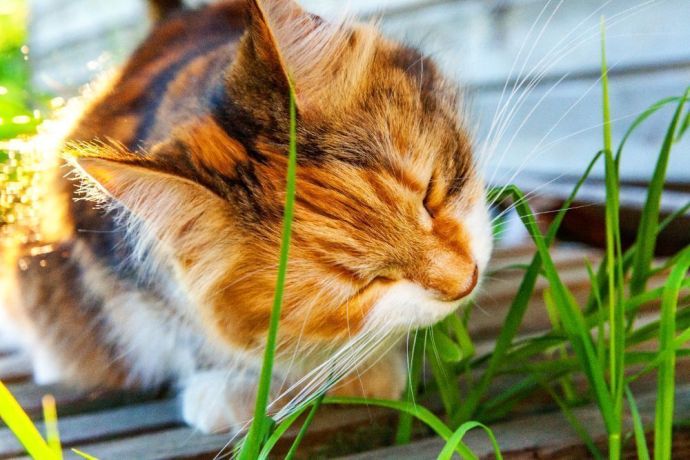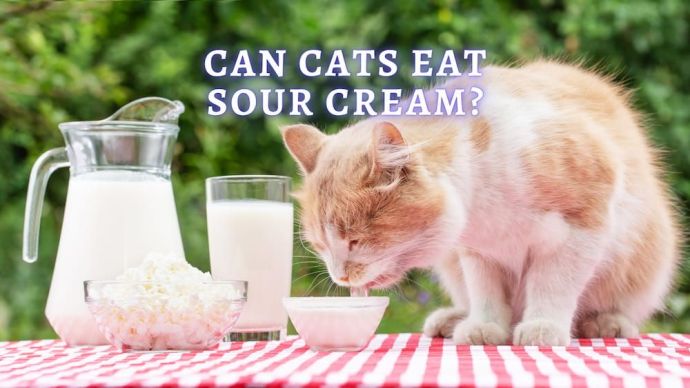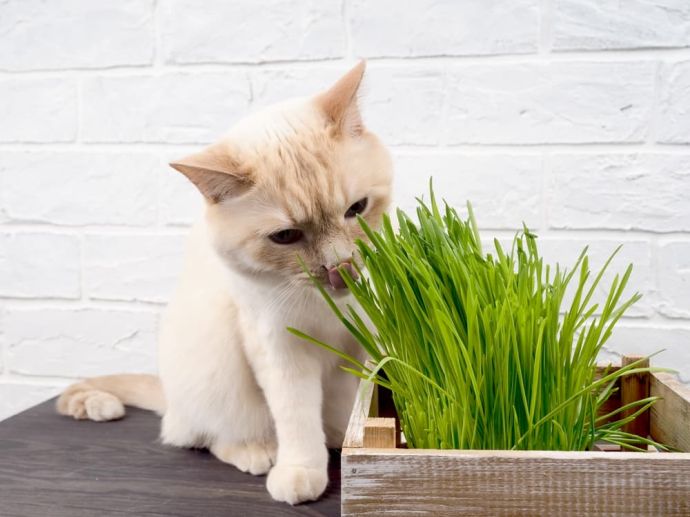My Cat not Eating much but Acting normal: Reasons and Solutions
Written by:
Author: Seb Jenkins
Seb is a professional SEO writer with a degree in Journalism, he has five years of experience in writing and editing. Seb specializes in topics like dog and cat breeds, aquarium guides, and pet care. He is passionate about educating and entertaining animal owners worldwide. In his spare time, Seb enjoys writing fiction novels.
View all 83 articlesLearn about our editorial process and veterinary review board.
Reviewed by:
Veterinary review
by Dr. Chyrle Bonk
Dr. Chyrle Bonk is an associate veterinarian since 2010 and was a volunteer for Clearwater County Youth 4H. Dr. Bonk contributed to various animal and veterinary related websites and magazines as a way to help keep animals across the globe safe and healthy. When Chyrle not working she spends her time with her own furry crew of dogs, cats, and horses.
View all 10 articlesLearn about our veterinary review board
Viewed: 12782
Updated on: 06/08/2023
How much or little your pet eats can often indicate how they feel. Therefore, it is essential to notice when they are not eating much, even if they appear normal. Fortunately, we have designed a handy article to guide you through the process from start to finish. Remember, your cat cannot talk to you like another human would. They cannot explicitly tell you when something is wrong. Therefore, you must learn to understand the little differences in their behavior and how to react to them.
READ MORE: Best Food for Indoor Cats
How to tell that Cat is not eating much?
Appetite problems may not be completely obvious initially, especially when your cat is acting normal in their day-to-day lives. This is especially the case if you have multiple cats in your house or if you free feed. Just because the food bowl is empty does not mean that one cat is not experiencing a reduced appetite. The things you should be on the lookout for are:
- The cat is not eating as much as usual;
- The weight has dropped;
- It does not seem as enthusiastic when faced with treats;
- Rejects food.
READ MORE: How to Deal with Cat Picky Eater?
Why is my Cat acting normal but not eating much?
1. Your cat is not hungry
Sometimes it can be as easy as it is, just not hungry. This often results from overfeeding, meaning you put so much food down for them that they do not need it all. The usual rule of thumb is to provide between 24 and 35 calories per pound for your cat each day. If you notice your kitty leaving behind substantial portions, you should consider reducing portions.
To be safe, you should book an appointment with your vet to rule out any psychological or physical illness. Try to reduce the portion sizes to the recommended amounts and see if your cat continues to eat. If the volume appears okay, they may not like the food you are providing.
2. Does not like the food
This is often the easiest-explained reason for not eating. After all, we all find it difficult to chow down on foods we do not like. Cats are no different. Some cats are simple eaters and consume anything you put in front of them. However, others will be picky about what they eat, making them tricky to buy. Believe it or not, some would rather starve than eat something they do not enjoy. Therefore, finding your cat’s favorite grub can be an adventure of trial and error. Purchase a load of different options, wet and dry, observing what they seem to like and don’t. The clues come in the form of how much they eat, how quickly, and whether they leave any behind.
While this isn’t true for all cats, many of them prefer to eat wet food because it’s closer in consistency to their natural diet. If your cat is refusing to eat dry food, consider looking at these wet cat food options at Veterinarians and choose one that’s best for your feline friend.
Cats are also known to resist changes in diet from time to time. For example, you may switch up your pet’s diet to make them healthier long-term or because you think they’ll appreciate the variety. However, the opposite may, in fact, be true.
You can do several things to ensure that your cat is more satisfied with their daily meals. When changing their diet, one helpful tactic can be to change gradually. That means mixing some of the new diet food into their usual meals and slowly increasing the quantity over time until they are eventually left with the fresh food alone. Food should always be served warm or, at the very least, at room temperature. Cats are known to be fussy about the temperature of their food. It would help if you never lost your temper or refused to put food down for a cat that isn’t eating much. Be patient and persistent with them through the process. If your feline is starving and you are seriously worried about its health, feed it some of its favorite foods to get it back on track. As we said before, you can then make the changes slowly from here. In terms of food quantity, you should aim to provide your cat with 24-35 calories per pound daily.
3. Your kitty is sick and may have medical problems
We all get sick occasionally, and your cat is no different. Illness can often affect your cat’s appetite, meaning that a sudden reduction in food consumption can indicate something is wrong inside. Common problems can include:
- Stomach upset – When eating causes stomach pain or discomfort, they often decrease the amount consumed or stop eating altogether to avoid the discomfort. This can also often go hand-in-hand with vomiting and diarrhea.
- Pain – Some cats refuse to eat because the process of eating in itself is causing them pain. They may also stop drinking water for the same reasons. This could be due to problems with their spine, jaw, posture, throat, and more.
- Dental problems – If a cat is suffering from dental problems then eating may be uncomfortable, especially hard foods. The most common tooth problems in cats are periodontitis, gingivitis, and tooth resorption.
- Indigestion – If the cat is experiencing discomfort within their digestion system, they will often opt to avoid eating altogether.
- Senior problems;
- Cancer;
- Gastrointestinal issues;
- Pancreatitis;
- Kidney problems, like CKD; [1]
- Infection.
READ MORE: How to tell if my cat is sick?
Once you notice that your cat has not customarily been eating for an extended period, you should book a vet appointment as early as possible. The vet will be able to conduct an exam and diagnostic tests that will help pinpoint the cause of the problem. At the very least, they will be able to rule out medical causes that will lead to looking at the food quality or quantity as the reason they’re not eating.
4. Your cat was recently vaccinated
If your cat has recently had any form of vaccination or other injection, it may explain a sudden loss of appetite. The good news is that this is entirely normal and common in cats. Vaccinations and injections are necessary to ensure your pet remains fit and healthy. However, they can sometimes reduce appetite for a couple of days. It would help if you looked to entice your feline friend with some of their favorite food during these few days. If the issue persists beyond the three-day mark, you may need to visit the vet.
5. Psychological stress and behavioral problems
Animals can go through periods of psychological distress for various reasons. These issues can be linked to anxiety, depression, stress, and fear. This can stem from a change in the cat’s surroundings, new people, new pets, additions to the family, new objects, a change in the day-to-day routine, and much more. Essentially, any change that the cat is not used to can, in theory, result in some form of psychological stress. Some cats can deal with these periods of stress on their own without any impact on their diet, while others will suffer from a drop in appetite.[3]
Care, patience, and time are key ingredients when dealing with psychological problems in your cat. It would help if you first took your cat to the vet to ensure that psychological issues cause their reduced appetite. The vet will take a look at your feline friend and look to rule out physical problems. Once you are sure that the issues are psychological, you can start to work towards a solution. Try to make them feel as comfortable as possible, spend time with them, get them acclimatized to any changes, and help them through this tough time.
6. Your cat does not like travel
This links to the previous section on psychological stress but is definitely worth mentioning in its own breath. If you have recently moved homes or are traveling with your cat on board, you may notice a drop in their appetite. This is because changes in routine and new surroundings can cause stress in your feline friend, making them less inclined to eat. Cats can also experience motion or travel sickness in cars/trains/planes, and they often need time to adjust to the new surroundings or for the sickness to wear off. Looking into motion sickness medication for next time is also a good idea.
How to encourage your Cat to Eat?
Like most animals, cats only stop eating when there is some kind of problem. Therefore, more often than not, in order to encourage them to eat again, the problem must first be solved.
Whether it is easing your cat’s pain, finding food they prefer, or adjusting the quantity, it is up to you to fix the issue.
Here are a few ways to encourage your feline to eat more:
- Top your cat’s food with their favorite food or treat.
- Heat up a little food before giving it.
- Mashup your cat’s food, especially if your kitty experience hard times chewing or swallowing their food.
- Similar to the previous step you can also add some broth to their food. Don’t forget it should be salt-free.[2]
Thankfully, for all the information you need on getting your sick cat to eat again, you can head to our in-depth article here.
READ MORE: Cat Eye Injury: Signs, Diagnosis, Treatment
FAQ
Why is my cat not eating but acting normal?
There can be a number of different reasons behind this. Cats may carry on acting as normal even if they are not eating their usual amount of food. The most common problems that lead to this are:
- Does not like the food;
- Simply not hungry;
- Sickness;
- Psychological stress;
- Recent vaccination.
Is it normal for a cat to not eat for a day?
This is not normal. If your cat rejects food for 24 hours, it could be as a result of a serious problem. Once you hit the 24-hour mark, you should look to contact the vet immediately and book an appointment.
How long can a cat go without eating much?
A cat can survive for a few days without eating anything. At this stage, you should be able to notice a visible reduction in weight and a change in behaviour. However, you should never wait three days if you notice that something might be wrong. If you realise that your cat has been rejecting food for 24 hours, call the vet immediately as it can cause serious health problems.
Why is my cat drinking a lot of water but not eating?
If your cat is drinking a lot of water but not eating, it may narrow down the cause of their drop in appetite. For example, the continuation of hydration but a reduction in food intake could indicate that it simply does not like its food or is not hungry. It could also mean that the cat is experiencing some dental pains that occur when it chews harder food or that they are experiencing digestive upset that creates nausea.
Article Sources:
- Freeman, L. M., et al. “Evaluation of Weight Loss Over Time in Cats with Chronic Kidney Disease.” Wiley Online Library, 16 Aug. 2016, onlinelibrary.wiley.com/doi/full/10.1111/jvim.14561.
- Zaghini, G. “Nutritional Peculiarities and Diet Palatability in the Cat.” Veterinary Research Communications, 30 Nov. 2015, link.springer.com/article/10.1007%2Fs11259-005-0009-1.
- Amat, Marta, et al. “Stress in Owned Cats: Behavioural Changes and Welfare Implications.” SAGE Journals, 22 June 2015, journals.sagepub.com/doi/abs/10.1177/1098612X15590867.
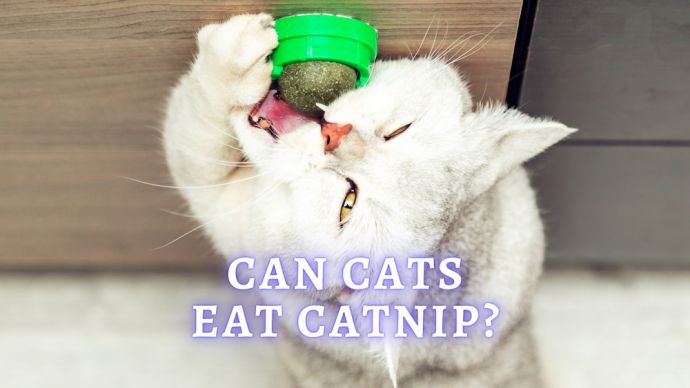 Cat Care Can Cats Eat Catnip? Are There Any Health Benefits to Cats Eating Catnip?
Cat Care Can Cats Eat Catnip? Are There Any Health Benefits to Cats Eating Catnip? - 97
- 0
 Cat Care Why Does My Cat Attack My Legs? 10 Reasons Why and What To Do About It (Vet-Approved Advice)
Cat Care Why Does My Cat Attack My Legs? 10 Reasons Why and What To Do About It (Vet-Approved Advice) - 46013
- 21
 Cat Veterinary Tips Cat Stomach Gurgling: Vet Advice on Why is Your Cat Stomach Gurgling?
Cat Veterinary Tips Cat Stomach Gurgling: Vet Advice on Why is Your Cat Stomach Gurgling? - 36469
- 4
 Cat Veterinary Tips My Cat Lost its Voice: Can Cats get Laryngitis? (Vet Advice)
Cat Veterinary Tips My Cat Lost its Voice: Can Cats get Laryngitis? (Vet Advice) - 23554
- 13









